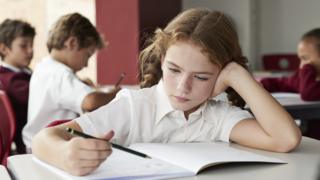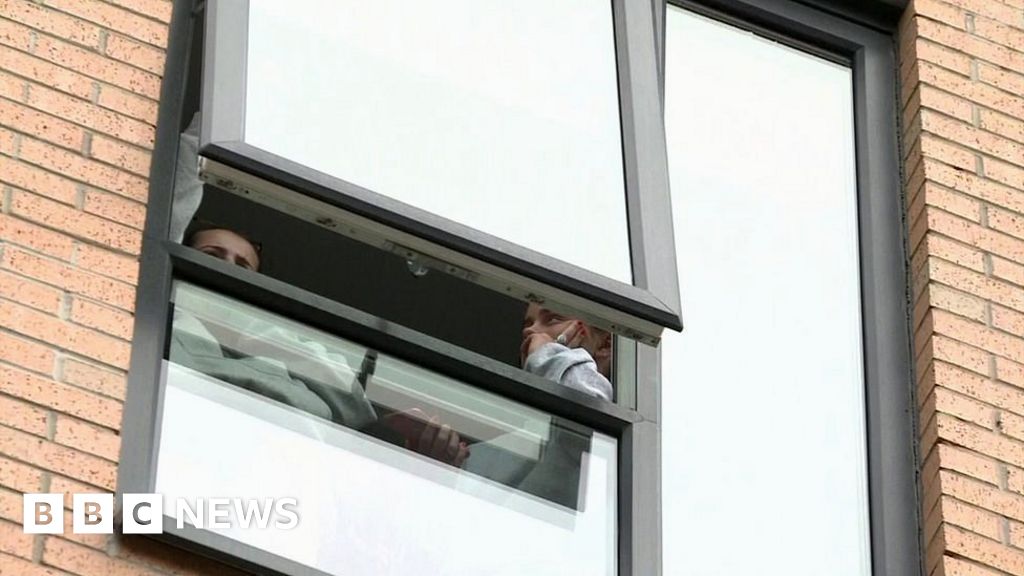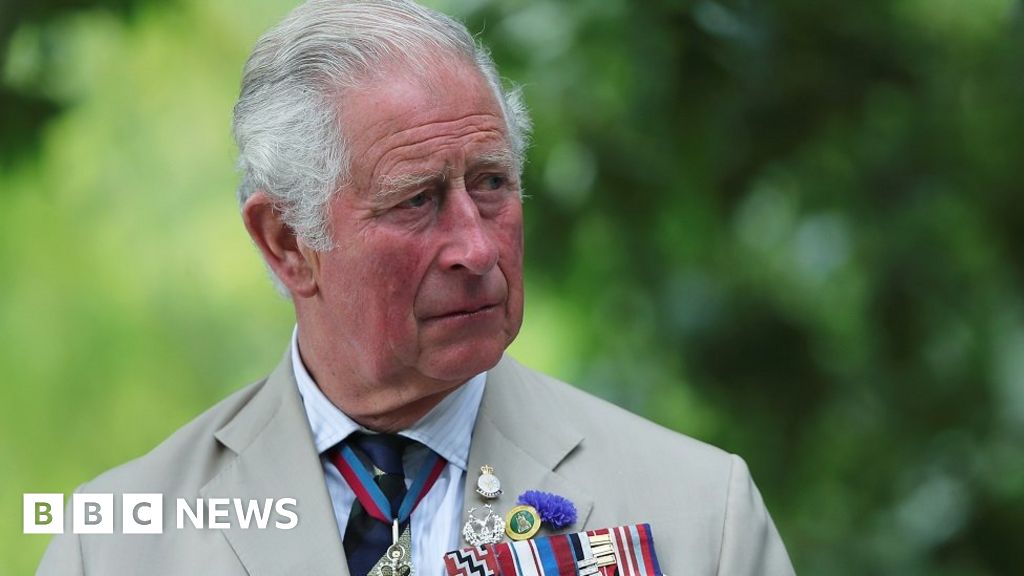 Image copyright
Getty Images
Image copyright
Getty Images
With coronavirus cases rising in parts of the UK, schools are adopting measures to reduce the spread and keep pupils safe.
But many parents still have questions.
What if my child has a cough or cold?
The NHS advises that if a child has mild cold-like symptoms they should continue to go to school.
Sore throats and blocked or runny noses are not symptoms of coronavirus. In the case of a heavy cold - says the government in Scotland - children may need to take a day or two off to get better.
However, if your child also has a new continuous cough or a fever, or a loss of - or change in - their sense of smell or taste, they may have coronavirus. Your child should stay at home, isolate for at least 10 days and be tested.
Other members of your household should also self-isolate for 14 days from the point when your son or daughter first shows symptoms.
Help from the NHS:
Are pupils allowed to hug?
The challenges in getting young children to socially distance are recognised in guidance to schools.
In England, "bubbles" - small groups the children will mix in - are encouraged, to balance the fact that they are unlikely to stay 2m apart.
In Wales and Scotland, pupils are exempt from the 2m distancing rule "because it is harder for children to understand the concept of physical distancing".
Older children, such as those in secondary schools, are being encouraged to avoid touching one another as much as possible.
Image copyright Getty ImagesWill children have to wear face coverings at school?
If they live in a local lockdown area, pupils in England in Year 7 and above will have to wear face coverings indoors, when not in class.
Additionally, headteachers in any secondary school in England will have the power to introduce masks.
In Scotland and Northern Ireland, secondary pupils have to wear face coverings between lessons.
In Wales, it will be up to local councils and schools to decide.
What measures should schools be following?
Measures being taken include the introduction of hand sanitiser stations, one-way systems and staggered break times.
Some rules must be followed in all schools, all the time:
keep pupils with Covid-19 symptoms, or with family members with symptoms, away from school more frequent hand-washing good hygiene around the use of tissues for sneezes and coughs enhanced cleaning proceduresSocial distancing should be maintained wherever possible.
What happens if there's a coronavirus outbreak?
A school is said to have a coronavirus outbreak if there are two or more confirmed cases within 14 days, or a there is a rise in the number of children off with suspected Covid-19.
If an outbreak in a school is confirmed, a mobile testing unit may be sent. Testing will start with the infected pupil's class, followed by their year group, then the whole school if necessary.
Image copyright Getty ImagesIn some cases, a larger number of pupils - for instance, a year group - may have to self-isolate at home as a precaution.
Closing a school will ''not generally be necessary'', the government says.
If pupils can't come in, schools are expected to have a home-working plan ready to go.
What about schools in local lockdown areas?
If there is a change in the number of coronavirus cases in an area of England, schools will use a four-stage tier system of extra measures.
Tier 1: Schools fully open to all pupils, face coverings required in corridors and communal areas for staff and students Year 7 and above
Tier 2: A rota system - ideally two weeks on, two weeks off - will be used by secondary schools and colleges for most pupils, and primary schools stay open
Tier 3 and 4: ''Wider groups of pupils'' go back to remote learning at home, while vulnerable and key worker children continue to go to school
These measures will be applied as ''an absolute last resort,'' the government says. Areas where local lockdowns are currently in operation, are in tier 1.
Do I have to send my child back?
Children must attend school, unless they - or a close contact - develop symptoms or test positive for coronavirus.
Head teachers can follow up pupils' absences and issue sanctions, including possible fines.
There is separate published guidance for England, Scotland, Wales and Northern Ireland.
How will the school day work?
The school day may look different to previous years.
Schools are being asked to:
stagger start and finish times avoid assemblies or collective worship with more than one group avoid contact sport and unnecessary sharing of objects Image copyright Getty ImagesWhat about getting to school?
Walking or cycling will be encouraged. Parents should not gather in groups at school gates, or go on site without an appointment.
Dedicated school transport services will be asked to:
move children in "bubbles" provide hand sanitiser apply social distancing where possible ask children over 11 to wear face coverings
 5 years ago
1088
5 years ago
1088 
